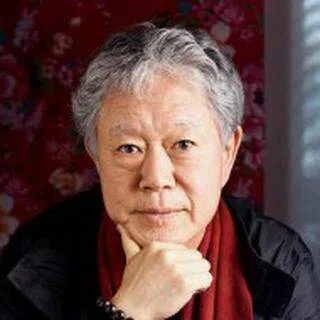Taiwanese art historian: Remembering my dear Arian friend, Cheng Shu-min
Art historian Chiang Hsun shares his memories of former Taiwan politician Cheng Shu-min, who had passed away in July 2023. Shu-min had the true heart of an Arian woman, driven towards success and poised against woes in her private life and political career.

I know many Arian females, most of whom are intelligent, pretty and vivacious. They are quick, confident and effective in their work; put them in charge of an organisation and they are often more gung-ho than men. Cheng Shu-min was exactly like this. She suddenly passed away in July 2023 and I miss her dearly. Memories of our interactions rush into my mind...
Horoscopes and characters
Some people see me writing about horoscopes and think that I have switched to fortune telling. But those who have read my articles will know that the horoscopes I write about have nothing to do with that.
The stars in the sky and all sentient beings in this universe each have their own place and vicissitudes. They have their ups and downs, and moments of light and gloom, but this is perhaps more like an observation of their character rather than a prophecy of good or bad luck.
My Geminian friends were elated when they saw my article on the Gemini. They know that I like Osamu Dazai - a Geminian young master who kept falling in love with his wet nurses, nannies and maids. He came from an affluent background but his deeds brought shame to the family, and so he committed suicide with these women. The Geminian's charm is often characterised by polar extremes: he was a young master but fell in love with the lowly maids; he wanted to die but feared death when the time came.
Dazai was authentic; he was likeable even if he had committed "sins". Trump is fake; boring once you see through it.
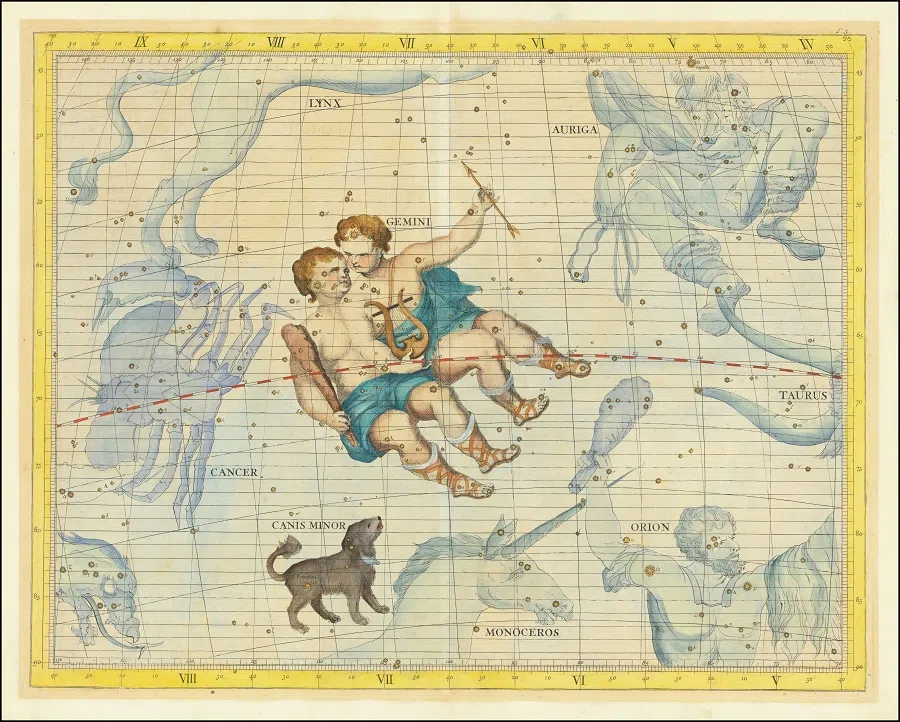
Dazai was quite a typical Geminian. I visited the canal in Mitaka where he had died. "Wow, it's so shallow?" I was shocked when I saw the canal. Why would the author of No Longer Human (also translated as A Shameful Life) decide to end his life at such a place?
But the strange thing was that the women died, but he lives on.
"Maybe Geminians don't die easily?"
Geminian R interjected and reminded me, "Because there are two of them."
Geminian F, who recently retired, deliberately agitated me, "Trump is also a Geminian!"
He knew I was not a fan of Trump and had purposely lumped Trump and Dazai together. He gave me a strange look, as if saying: "See? Your beloved Dazai and your despised Trump are both Geminians!"
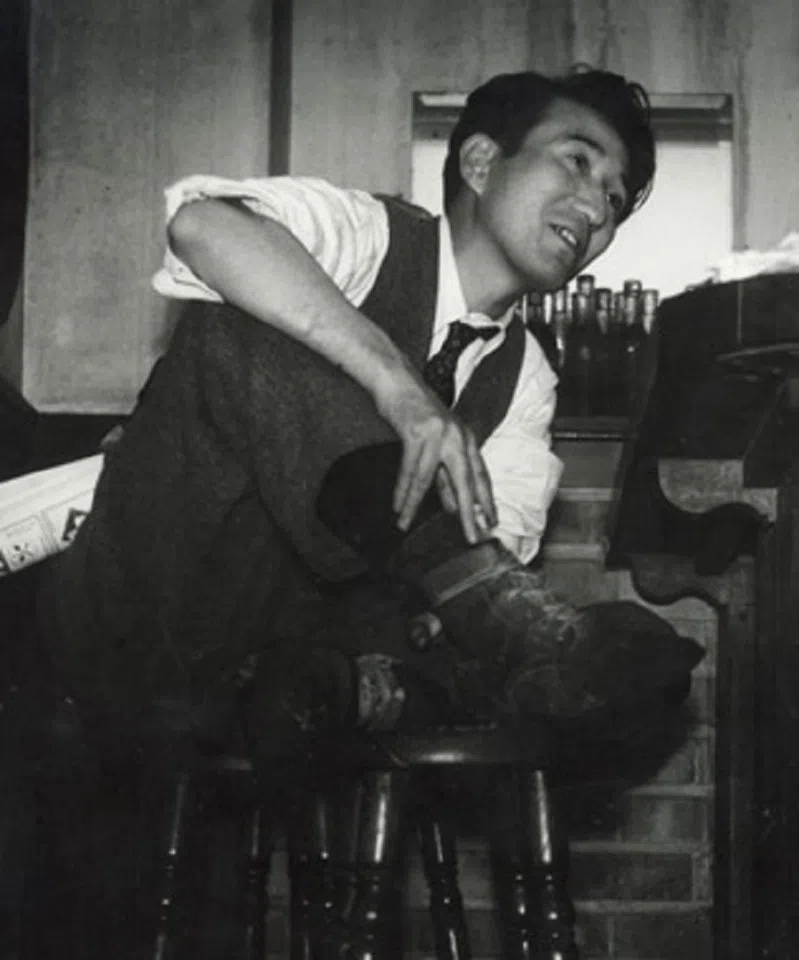
I dislike Trump not because of politics but simply because I think he's vulgar from the way he looks to the way he speaks. Dazai felt that he had committed sins but he was authentic and charming. Trump is the complete opposite - he is sinful but he's full of himself.
They happen to be the two personality types of the Gemini twins: one is authentic and the other is fake.
Dazai was authentic; he was likeable even if he had committed "sins". Trump is fake; boring once you see through it.
But if you think about it more, how can politicians who have the masses in the palm of their hands be authentic?

Geminian F knows me well. Seeing that I remained silent, he irritated me further, "You know, XXX is also a Geminian!"
"Erm..."
F put me at a loss for words. I didn't speak to him for the rest of the day.
So, horoscopes have nothing to do with blessings and curses; beauty and ugliness; or good and evil. Let stars be stars - since they're following their own paths in the skies, they shouldn't abide by the rules of the world, or be subject to the restraint of worldly love and hate.
Forging a friendship
Shu-min was an Arian. She had the high and full forehead of an Aries, a pair of charming yet somewhat sorrowful eyes, delicate and white silky skin, and teeth that resembled seashells which sparkled like pearls when she smiled, reminding one of the Golden Fleece in Greek mythology, shiny and bright.
I got to know Shu-min around 1977 when I had just returned from Paris. She had also just returned to Taiwan with her husband, Robert Clarke. We were in our thirties, at the prime of our lives, and at the time, it was also Taiwan's heyday.
Martial law had eased a little, and the Chiang Ching-kuo administration strived to develop Taiwan and implemented various reforms. Many innovative concepts sprung up in the mid-1970s, such as the multi-party system, the semiconductor industry, the Ten Major Construction Projects...
Shu-min and I were happy to have witnessed the great things that were happening and the hard work that the island had put in. We had no more regrets.
Shu-min was around the same age as me, but much more mature than I was.
The gap between us probably started to form around 1968, when she graduated from the Department of Foreign Languages and Literature at National Cheng Kung University and was going to KU Leuven in Belgium. Back then, I was still in my last year of university. I went on to military service followed by graduate studies. When I went to Europe at the end of 1972, she had already returned to Taiwan and was a programme director at the Chinese Television System.
... we slowly forget the people and things that we ought to forget and empty them from our minds completely. They no longer hold us back in this life.
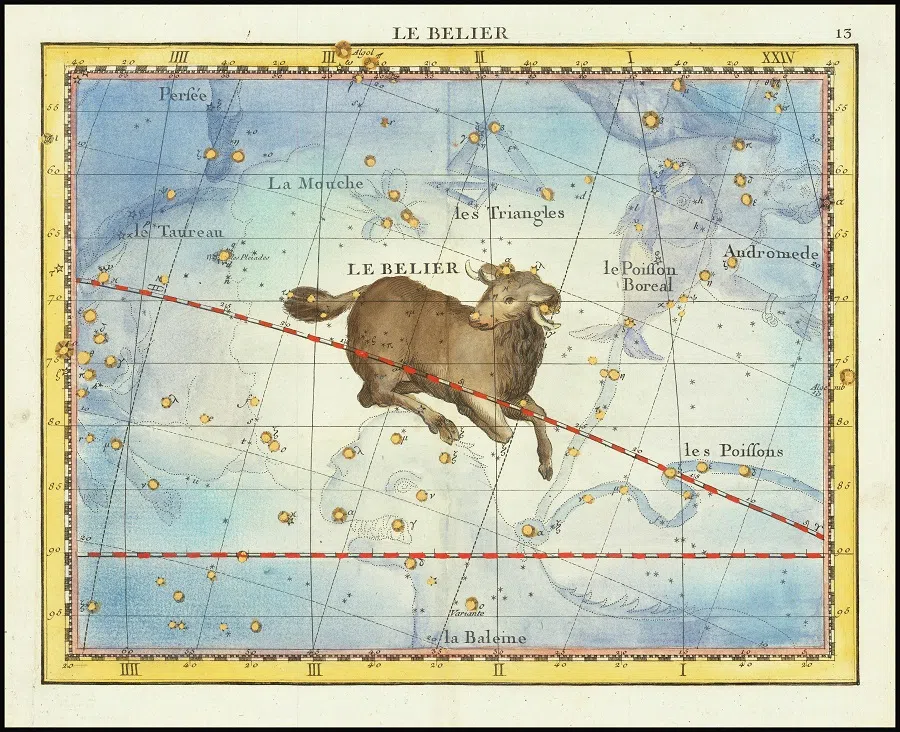
In 1973, she decided to marry Robert Clarke, director of the US information agency in Taiwan, and thus embarked on her political career towards the upper echelons of the political core. At the time, I was still wearing my ripped jeans and reading Peter Kropotkin's The Conquest of Bread along the Seine, revelling in the dream world of an anarchist utopia.
Stars and stars, people and people - they meet or brush past one another in space and time following their own orbital paths. When by chance they sense another with a similar magnetic field, they draw near, and either form attractions or repulsions before returning to their own orbital paths again. I guess this must be what it means to "forge a forever bond in a journey that is void of emotions" (永结无情游, a line in Li Bai's poem).
As we get closer to our demise, we can understand Li Bai's journey that is "void of emotions" in different moods. From knowing someone to being with someone and finally forgetting that someone, it feels like planned dementia - we slowly forget the people and things that we ought to forget and empty them from our minds completely. They no longer hold us back in this life. I guess that's what a journey "void of emotions" is.
A grand wedding
In a news documentary video aired in 1973 on Taiwan Television, I saw a young Shu-min. That day, on 7 April, the Arian celebrated her 26th birthday and blossomed like a flower. She chose to marry the director of the US information agency, who was almost the same age as her father. Clarke had been recently widowed and immediately remarried. With such a huge age gap between them, the rumour mill must have been on overdrive then I guess?
The good thing about Arians is that they are not bothered by what others say. They go their own way and simply laugh them off. When they are really annoyed, they would just vent their frustrations with a short "damn it". They will never allow rumours to ruin their confidence. Dazai was like this, and so was Shu-min. (Come to think of it, Trump is like this too. I should really take my hat off to him; he's so disgusting but he couldn't care less.)
I suggest watching Shu-min's wedding footage taken on 7 April 1973. It's a short news documentary, and I have watched it countless times. I am in awe of the Arian's beauty, elegance and confidence. She held a wine glass in her hand, wore a long gown and stood beside her fatherly husband, smiling charmingly and speaking warmly with her guests.
I thought to myself: would the Arian not have known about the mission of the director of the US information agency in Taiwan back then?
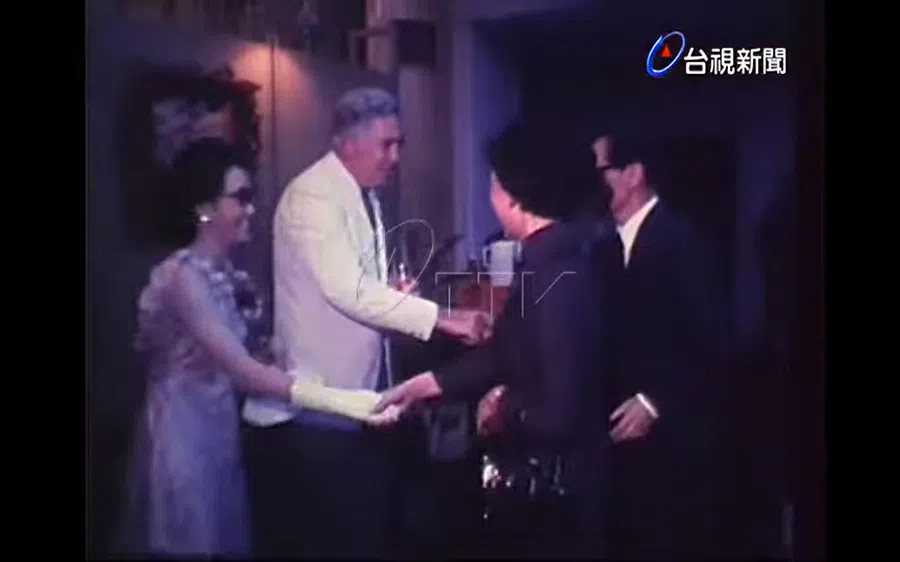
"I didn't know that the US ambassador, defence minister and many others had come that day."
Many years later when we were chatting, she mentioned the wedding and looked as if she was still reeling from the shock.
At the age of 26, it could indeed be the case that she was really unaware. I thought to myself: would the Arian not have known about the mission of the director of the US information agency in Taiwan back then?
That year, Shu-min stepped into a world not easily understood by the layman - politics, intelligence and political parties. And she took it all in. At that time, Chiang Ching-kuo was premier while Lee Teng-hui was minister without portfolio. A few years later, the US would "abandon" Taiwan and establish diplomatic relations with Beijing. The Arian saw it all - she watched everything that was about to unfold with the superior wisdom of the ancient Aries constellation.
"It's all written in the white paper, whether it is breaking or establishing diplomatic relations. It has nothing to do with which party is in power or who is president!"
She told me once, out of the blue, that she had been going through declassified documents with her husband in Washington. But I still sensed the faint sorrow of an ancient constellation.
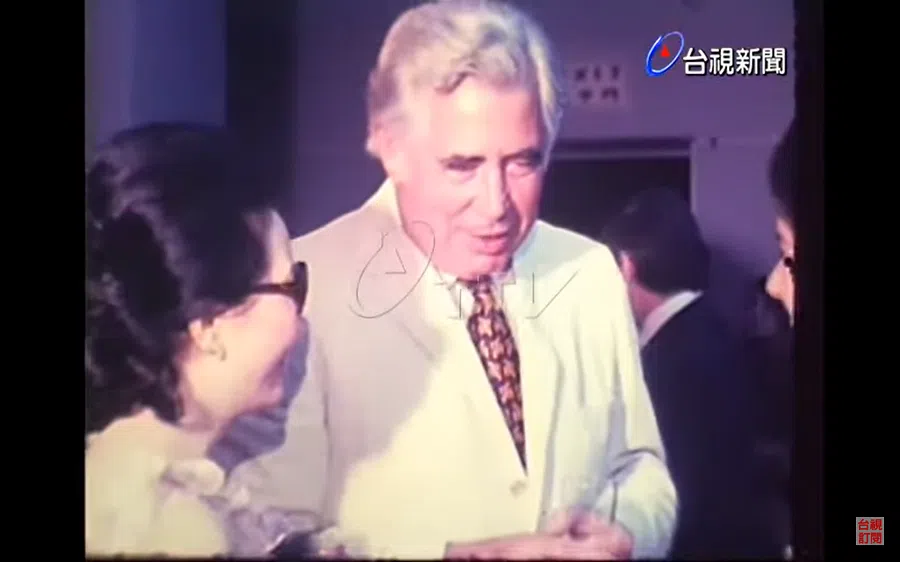
She married Clarke and accepted a few "sons" of his ex-wife who were the same age as her. I believe Arians can be really beautiful and mature stepmothers. Her stepsons listened to her as well. One time, she was talking about her family matters and told me, "My third son is gay..."
She lightly mentioned "my third son" and I can see how the Arian stepmother can really be a competent mother - that "third son" probably didn't confide in his biological mother about being "gay".
What a successful stepmother!
Clarke got cancer and passed away in the Taipei Veterans General Hospital. Shu-min refused to enter the hospital room. I guess she didn't want to witness a person's last distress. So I visited Clarke very often. He was a benevolent yet forlorn old man. He would be on his bed, writing poems to Shu-min, while I would be heating up his favourite seafood porridge at the side.
Clarke passed away and a simple memorial was held at the hospital. Shu-min didn't invite outsiders and neither was the memorial made public, completely opposite of her wedding. Perhaps Arians think that when something is over, it should be over; it should be swift and direct.
His ashes were placed in an urn and I carried it in my arms. I accompanied Shu-min and her daughter back to the US, parting ways in San Francisco. She did not say a single word as I passed the urn to her.
Documenting Taiwan's culture
In the end, Clarke was just a kind old man who loved his wife and daughter. I'm actually not familiar with him. Whenever Shu-min invited me over to her place to eat and talk, we were always in the smaller study. Clarke had another larger study where he hosted his friends.
Once, former Tunghai University president Mei Kewang came to visit. He referred to Clarke as laoshi (老师, teacher), and teasingly addressed Shu-min as xiao shimu (小师母, a term of respect for your teacher's wife).
I was naive and innocent, but the intelligence and security departments were not. The publisher could not withstand the pressure and I resigned in 1979.
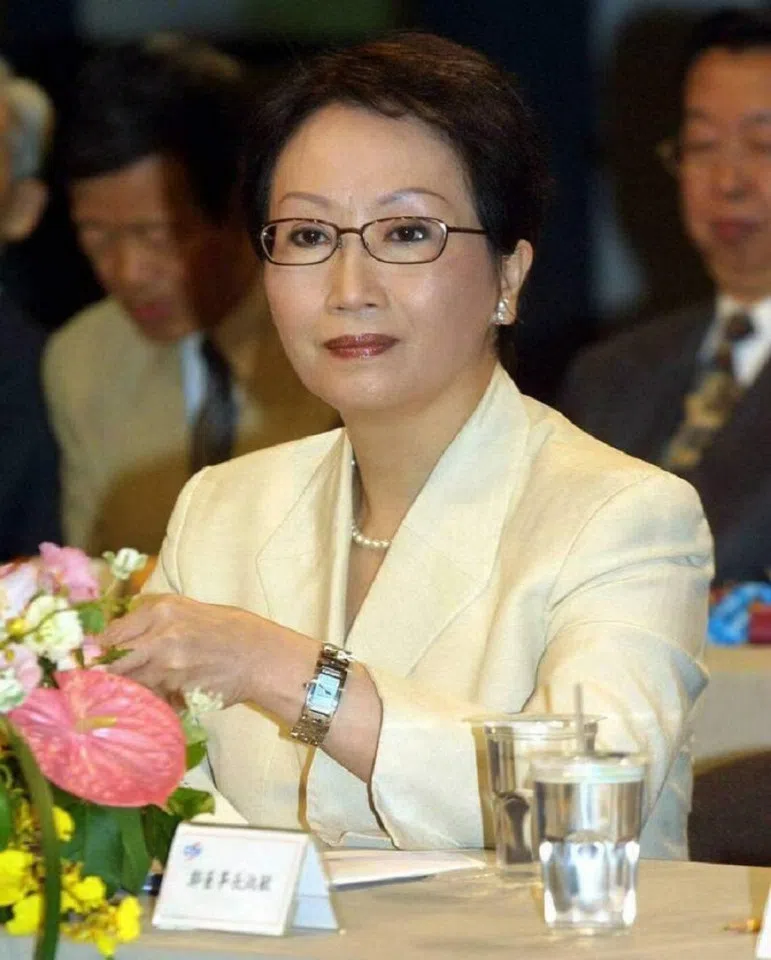
Clarke had taught English at the Hunan police system before 1949 and Mei was one of his students then. I don't normally pry, but I realised that some of the people who came to talk with Clarke were columnists or university professors. They chatted in private in the study, while Shu-min and I were in another space talking about anything under the sun.
Around 1980, Shu-min would often visit me despite her busy work schedule. I stayed near Datun Mountain and taught at a few universities, climbing the mountain with my students and singing along the way.
"I think I can also live such a carefree life like you do..." she lamented sometimes.
The Arian sounded a little envious, but I knew she couldn't do it. She saw key declassified government documents way too early, and it would be difficult for her to go back to being the naive and pure person who had never come into contact with politics.
Because her husband was previously in charge of the highest level of propaganda (or intelligence) work in Taiwan, Shu-min's maturity was perhaps beyond the imagination of my silly naive self back then.
After I returned from Paris, it was difficult to return to the days of indifference during martial law. In 1977, I put together a cultural publication and attempted to use my naivety to change the editorial direction, publishing the works of several writers who were concerned with the reality of the times, unveiling taboos in Taiwan's art history, and promoting indigenous folk songs.
I was naive and innocent, but the intelligence and security departments were not. The publisher could not withstand the pressure and I resigned in 1979.

Back then, Shu-min lived near the publication's office. After I resigned, she invited me over for a meal at her place one day. We had a casual chat after eating and she mentioned that Yu Chi-chung, founder of China Times, had asked her to take charge of a liberal magazine and if I could come on board as one of the writers.
"One of the writers? What do I need to do?" I asked.
She laughed, "Nothing much. You'll be given a monthly salary and you can write articles as you wish. If you don't feel like writing, that's fine too."
This is obviously a relaxing job with a high salary and no restrictions. But I wrote a regular column because of this, which was later compiled into a prose collection Ping shui xiang feng (《萍水相逢》, meaning "a chance encounter").
Shu-min was in charge of the China Times Magazine (《时报杂志》) that started in 1979. At the time, the magazine indeed gathered a team of outstanding Taiwanese cultural workers, from politics to culture and the arts, especially for literary reportage and reportage photography, and many social phenomena were fairly documented. The China Times Magazine was discontinued in 1986, a year before martial law was lifted in Taiwan. This is a magazine that I dearly miss.
During the nearly ten years between the end of diplomatic relations with the US and the end of martial law, was it through the protection of American higher-ups that the earliest steps towards Taiwan's "liberalism" were taken?
To leave and never return
Thinking about it now, Yu must have been aware of Shu-min's special identity. During the nearly ten years between the end of diplomatic relations with the US and the end of martial law, was it through the protection of American higher-ups that the earliest steps towards Taiwan's "liberalism" were taken?
My naivety perhaps also included thinking that since I shared everything with my Arian friend Shu-min like she's my best friend, she would at least know something about my background.
Back then, because of my teacher Chen Yingzhen, I was involved in the writing and some editing of leftist magazines like China Tide (《夏潮》). In 1979, I left the magazine and was at the same time not reappointed in the university I taught at.
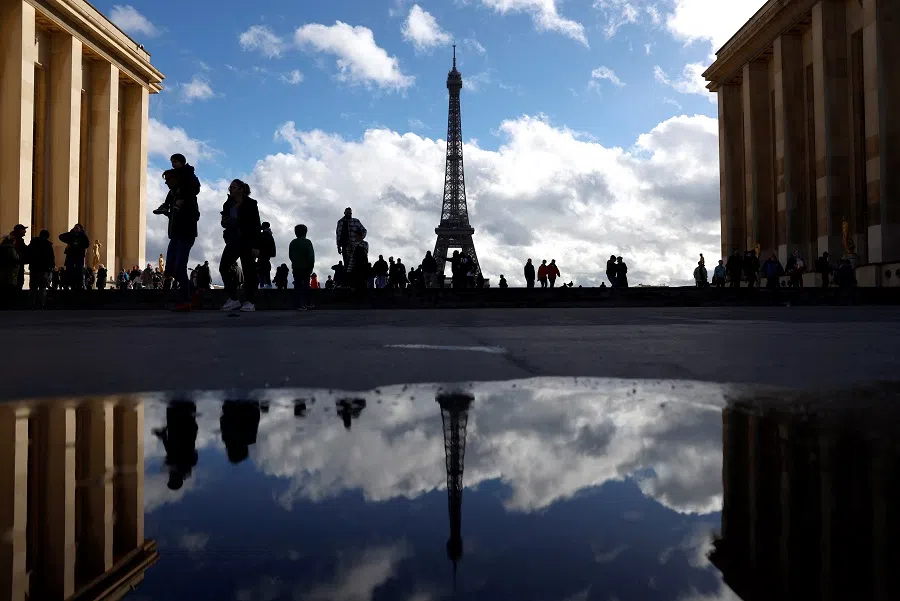
There are moments in life when we feel lost and uncertain. I was once depressed and thought about returning to Paris. Had I left like that, I may have decided in a fit of pique never to come back.
I told Shu-min about my frustrations with the intelligence and security departments and also mentioned that I felt like returning to Paris. She calmly asked me, "Did you come back to Taiwan for these people? So why are you leaving because of them?"
I am very thankful for the Arian's composure and maturity. She helped me understand that life can be free of trivialities. During our talk about my return to Paris, Shu-min also shared a story that she probably would not tell others.
Young but poised
In 1978, the US announced that it would end diplomatic relations with Taiwan; on 16 December, director-general of the Government Information Office James Soong informed Chiang Ching-kuo, and the whole island was appalled.
I have never shared Shu-min's stories with anybody because I am aware that it is a sensitive matter. She was not afraid to tell me either, because she knew that I was a trustworthy friend.
I am sharing this today because Shu-min has passed away. She has become a star in the sky. Does she still remember how helpless she was when she told me what had happened?
That day, she was suddenly drowned in nostalgia and talked about the establishment of diplomatic relations between the US and Beijing. Clarke was hosting guests at home for a small celebration. Key American officials and experts involved in the establishment of diplomatic relations had come. I was clueless about politics and had never heard of the names she mentioned. I only remembered a John King Fairbank.
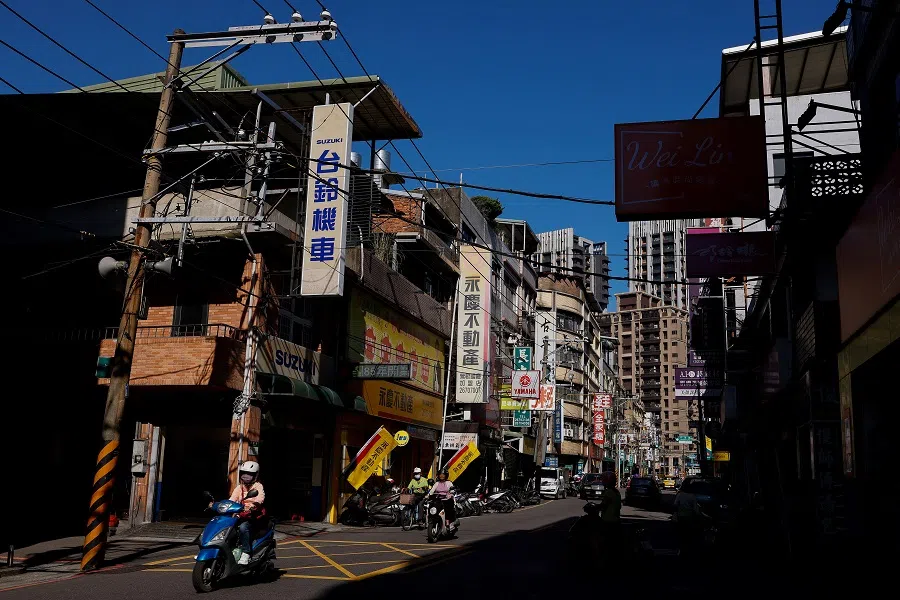
She played the female host and her guests were drinking to their heart's content, celebrating the establishment of diplomatic relations. It was her responsibility to keep the fun going.
"And then," she said. She was silent for a while before continuing, "I excused myself to go to the restroom and hid inside. I flushed the toilet over and over again, while I covered my face and bawled my eyes out."
But the female host can't just stay inside the restroom, right? After all her cries were muffled by the flushing, the Arian washed up and reapplied her makeup, looking as fresh and glamorous as before. She celebrated and cheered alongside the American higher-ups, served them well, thanked them and finally bade them goodnight.
Only Clarke saw how she smashed a pearl necklace around her neck against the mirror before bed, throwing a huge tantrum.
Clarke, who was old enough to be her father, had loved her dearly. It must have been a blessing to have a young wife who was sensible in front of others yet wilful in private.
The Arian could keep the big picture in mind and never lose her composure in front of others, but only the flush of the toilet could hide her unspeakable loneliness and grievances.
When we got to know each other, Clarke was already diagnosed with cancer and was thus even more amicable and benevolent. They had a daughter and I felt that it was a happy family.

Shu-min and I deeply understood each other and were extremely close. She told me about every love affair she had. While she was still a student in Europe, a Taipei representative stationed elsewhere was already chasing her. I know the Taipei representative, and he was also old enough to be her father. I guess Shu-min probably could not tolerate the childishness of men her age.
She was too mature for her age; she wanted a sophisticated, silver-haired man to take care of her, study with her, and share her thoughts on life. That representative who was well read in the works of Marcel Proust gave her a taste of the most exquisite lifestyle in Paris. She could still remember much about their times together when she recounted it.
"I later decided to break up with him because my mother was someone's second wife. I didn't want to experience the grievances of a third party."
I didn't ask if that was her first relationship. Clearly, she never had deep feelings for men her age.
She also had a passionate relationship with a poet in New York. Each time they met, the poet would lift her up and spin around dozens of times. I counted his age, and the poet was also nearly 20 years older than Shu-min.

I was very familiar with all of her partners. Even after she had retired from public service, she still fell hard for someone. He was one of my best friends and was already around 70 years old at the time. He was intelligent and wise, but also tolerant and accepting. I was really happy for them and they even talked about marriage. They travelled to Bhutan together but decided to break up during the trip.
She shared the story with me when she returned to Taiwan. It's a pity - relationships in one's golden years are not just about passion but also about creating enduring memories of togetherness and companionship in the evening of one's life. But she was a little sad and regretful; having fallen ill during the trip, Shu-min had asked him, "Who do I call if something happens?"
Stories never shared
"No one, just cremate here and now!"
That was a good friend of mine who grew up in chaos and war. There's a destructive candour to his open-mindedness and tolerance. Both Shu-min and I have read about the story of the man who said "when I die, bury me on the spot" among the Seven Sages of the Bamboo Grove. But perhaps we were unable to fully let go as we had yet to experience total destruction and utter despair.
I was always conflicted about the fact that the lady who so freely shared her private life with me kept appearing on the news on television. A high-ranking government official and a lonely lady yearning to be loved; together, they made up the light of the Aries constellation, which bewitched me.
She became the minister of the Council for Cultural Affairs in 1994 and was responsible for the cultural work of the island. As an avid reader of philosophy and literature who also enjoyed watching plays and listening to concerts, Shu-min had an incredibly sophisticated taste and was different from the usual cultural officials who had a background in politics.
In those few years, we discussed how we could invite world-renowned artist Christo Vladimirov Javacheff, famous for his enormous wrapped sculptures, to wrap the Presidential Office Building. We hoped to make the world see Taiwan through a piece of art.

But this did not come to fruition and she felt even more defeated than I was. We believed that Taiwan's conservatism was not just about politics but a longstanding conservatism and stagnation that refuses to face the world, hiding at the bottom of the well to look at the sky and daydreaming of one's own future.
I have never been around officials. When friends turn into one, I wish them well from afar and distance myself from them. Shu-min was the only exception. She asked me to be a director of the National Culture and Arts Foundation and I obliged. But it was indeed mundane and she let me off, allowing me to resign.
But we remained good friends. After a busy day of work, she would still ask me out for a stroll in the mountains or a little heart-to-heart chat at her home. I knew my boundaries when it came to her stories and made sure never to share them with others.
Her identity as a secret cross-strait envoy was exposed and the media went into a frenzy. She maintained her composure, kept her own boundaries, and did not say anything inappropriate. She still came to see me and we drank tea together. No words were spoken; not even crying sounds muffled by the flush of a toilet.
When she became the chair of CTV (中视), she wanted to add a little literati aesthetic to her office and borrowed three of Tai Jingnong's calligraphic works from me: a large central-hall scroll (中堂) of Shimen Song (石门颂, Stone Gate Eulogy), and a pair of couplet. When she resigned from CTV, I quickly asked for the works to be returned, only to be left with the couplet. The central-hall scroll is still missing today. I was a little upset, as the piece had a personalised note from Tai laoshi.
Maybe the extremely capable Arian had no time to deal with such trivial matters, but I still said, "Shu-min, I dearly cherished what Tai laoshi had written for me."
That is the Shu-min whom I miss, and that is Taiwan in the 1980s that I longingly remember.
As we part ways
After she retired from public service, she devoted her time to yoga and occasionally showed me her yoga poses. I guess the flexibility associated with yoga and returning to one's own breathing is a relief for a body that has been stiffened up by tense politics for years.
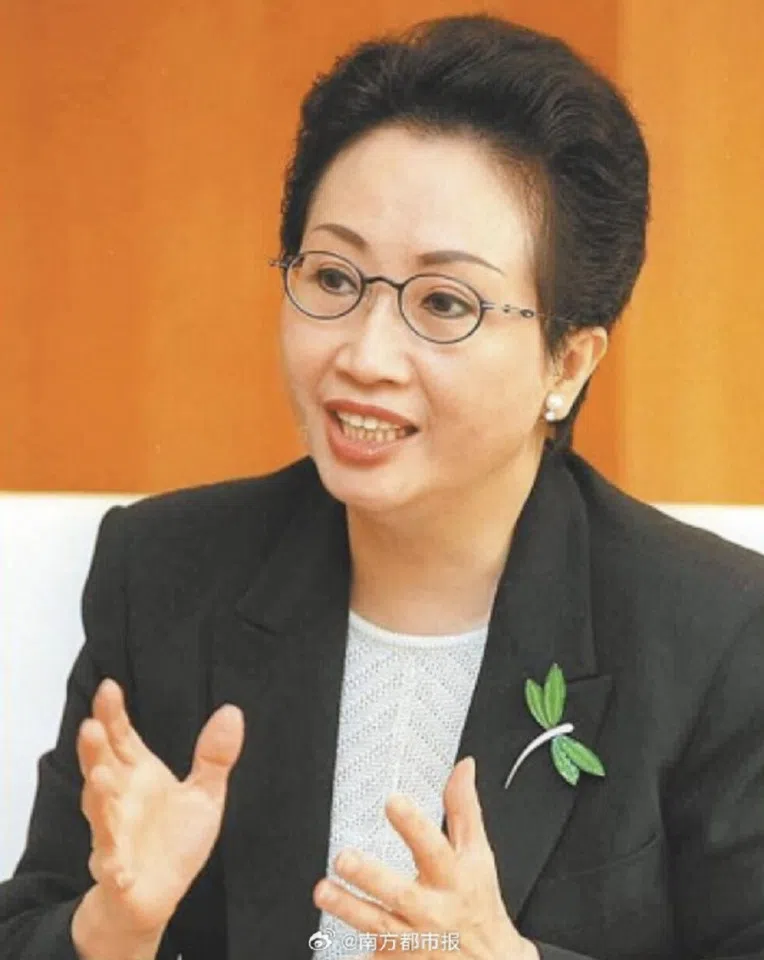
She decided to return to the US to settle down and asked her architect friends to design her Washington home. She requested, "Both of my daughters are to have their own spaces and I must have my own space as well. We can take care of one another but also not disturb each other." She was still so clear and concise even as she planned her twilight years.
We ate our farewell dinner at a little restaurant on a beach in Shalun, Tamsui. The seafood was great but it got windy that evening and everyone ate mouthfuls of sand. Sending a dear friend off should've been a sad occasion, but it was awkward to talk because we wanted to avoid eating sand. We couldn't even speak clearly.
The media said that Shu-min's life had been "legendary". But I guess her legendary life was just an Arian being herself. I suddenly recalled that the magazine had reported on a young artist at the time. Shu-min saw his works and had me accompany her to visit him.
He stayed in the Wugu district in the 1980s, when rubbish was littered everywhere. We stepped over the garbage and rang the doorbell of an old house. The young artist's sleep was interrupted and he woke up in a daze. He was naked save for a pair of BVD underwear - he almost hoped that he could disappear right there and then. Shu-min was easygoing and stretched out her hand, "I'm Cheng Shu-min. I love your paintings."
That is the Shu-min whom I miss, and that is Taiwan in the 1980s that I longingly remember.
In late July 2023, I heard that she had a fall. She was quickly extubated and passed away shortly after. I returned to Shalun and walked around. The stars in the sky were abnormally bright and there was no wind or sand. I feel that I can have a good chat with my dear Arian friend about the things that happened after we parted ways.
This article was first published in Chinese on United Daily News as "牡羊座(下篇)──告別淑敏(上)、(下)".
